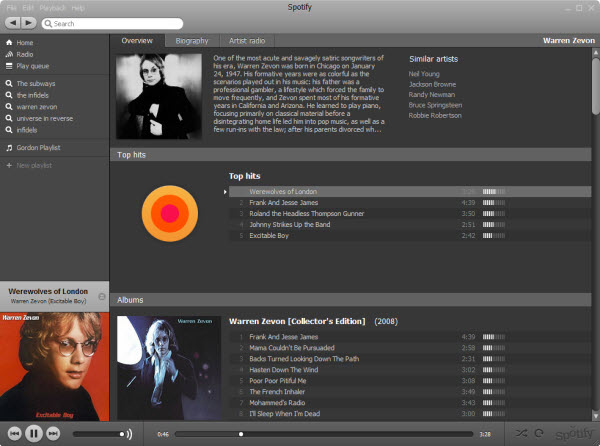It’s been almost two years since Spotify launched in Europe – why in the hell isn’t it out in the US yet?
Yeah, yeah, the question is rhetorical because what other reason is there for blocking the domestic release of what Lifehacker calls “the best desktop music player we’ve ever used?”
Raise your hand if you guessed right – The reason why Spotify isn’t out yet is because of our old bumbling nemesis, the major record labels!
Before we dig in, I want to reiterate why Spotify is so compelling a product. The excitement of what Spotify offers isn’t so much the actual product it peddles. There are already a handful of music services that offer unlimited music playback for a monthly fee. Its main draw is that it employs a ad-supported freemium model where anyone can listen to music without charge initially. If you like the service you can pay for other compelling perks such as mobile device playback or higher quality playback.
I think the music monetization problem is twofold. The first is finding a means in delivering music to people that isn’t cumbersome and cost-prohibitive to the consumer. This is a problem that is more or less solved by Spotify. It’s easy to use, delivers accurate results, is the right price, and even incorporates innovative features like playlist collaboration/browser based sharing. The service itself appears to be a great product, worthy of people’s time. It’s not a trivial accomplishment, as most other “legitimate” music services have failed miserably at this throughout the years, including the vaunted iTunes.

